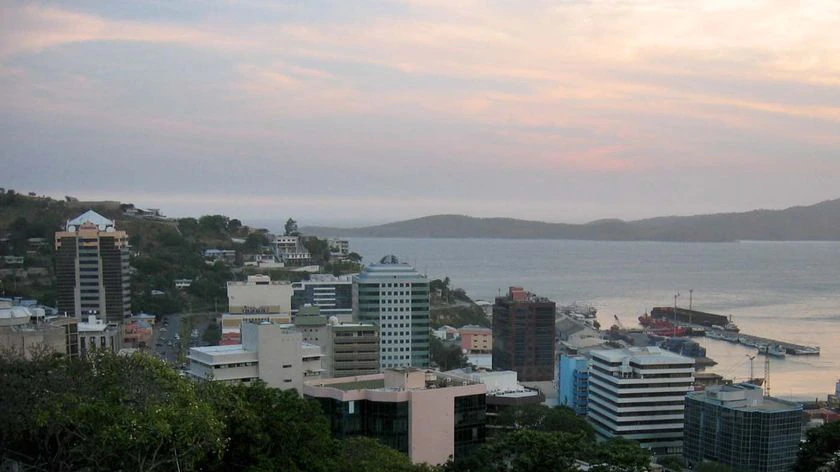The final group of refugees still held in Papua New Guinea a decade after being exiled there by Australia will begin leaving “within weeks”, the country’s migration chief has committed, saying the majority will be resettled in New Zealand, while those suffering acute health problems will be brought to Australia for treatment.
There is an increased urgency to resolve the situations of the final cohort of refugees and asylum seekers left in PNG after the closure of Australia’s illegal offshore detention centre on Manus Island. The Australian public money provided to PNG to care for the men following the closure of Australia’s illegal offshore detention centre on Manus Island has run out, according to PNG officials, leaving the men without vital health services and facing eviction, while local businesses are owned tens of millions of dollars.
In an interview with Guardian Australia, PNG’s chief migration officer, Stanis Hulahau, said there were 64 refugees and asylum seekers who remained in PNG after being forcibly sent there under Australia’s offshore processing regime, most more than 10 years ago.
“I have had a number of discussions with my colleagues from [Australia’s] department of home affairs, and with the UNHCR: we are working to reduce the numbers right now,” Hulahau said.
“We have a total of 64 refugees and non-refugees. Sixteen of them are people with high needs – for those 16, we have discussed with the department of home affairs to have them transferred to Australia for special medical treatment.
“Ten are going through our process to settle in PNG, those are ones who have married and have children. And we are working with the NZ government to look at settling 40-plus people in New Zealand.
“I am confident that in the coming weeks – in the next two weeks or so – there will be some movement.”
Government sources in Australia confirmed Hulahau’s outline.
The sixteen men within the cohort who are reported to be suffering acute physical and mental health conditions require significant medical care. That group is said to be too unwell to “engage in any resettlement process” so they will be brought to Australia.
Hulahau said it was likely there would remain a small group for whom a long-term, durable solution was yet to be found.
New Zealand’s immigration agency has been approached for comment, but has not responded. The country’s government recently changed following a general election.
The final remaining cohort of the refugees sent to PNG under Australia’s offshore processing regime has become acutely sensitive in both PNG and Australia. As the money provided by Australia has run out, services have steadily been curtailed or withdrawn entirely, and the men’s health has deteriorated while their living conditions have worsened.
Both governments refuse to say how much money Australia provided to PNG. But the money is “close to exhausted”, Hulahau said. Many local service providers, such as motels, transport providers, security firms, and Port Moresby’s largest hospital, were owed tens of millions of dollars.
“The money is not sufficient to pay all the invoices that are owing,” Hulahau said, confirming there had been discussions between governments about the money owed to PNG businesses.
Hulahau said the money initially provided by Australia was based on a steadily declining number of refugees being cared for, as more were resettled in New Zealand, the U.S or Canada. But the Covid-19 pandemic caused PNG’s borders to be closed for months, and resettlement processes ground to a halt.
“The model did not cater for the risk of Covid-19. Because of that, the borders were still closed, and the people remained in the country longer and the funding was used up quickly.”
Most of the men arrived in Australia by boat seeking asylum in 2013 and 2014, before they were forcibly removed from Australia and sent to the Manus Island detention centre.
That Australian-run detention centre – which housed more than 1,350 men at its peak – was illegal, and the PNG supreme court ordered it shut in 2016. The men remained in PNG more than seven years later.
At the end of 2021, the then Morrison government in Australia signed a “confidential bilateral agreement” with the PNG government, for PNG to provide funding for the housing and welfare of the men who remained.
Both the Australian and PNG governments argue it is not a secret agreement, but despite repeated questioning, will not reveal any details of the deal, nor how much it is worth. Australia has refused to disclose any information at all saying the information would do “damage to the international relations of the commonwealth [of Australia]”.
Hulahau said PNG was a welcoming country and officials had “worked hard, around the clock” to provide vital services for refugees sent there by Australia.
“We have acted in good faith and provided that support to Australia.”
A spokesperson for Australia’s department of home affairs said Australian and Papua New Guinea officials were in discussions regarding those who remain in PNG.
“The residual regional resettlement arrangement caseload in PNG have durable migration options, including permanent settlement in PNG, third country resettlement in the United States, New Zealand or Canada, or voluntary return to their country of origin or to a country to which they have right of entry,” he said.
SOURCE: THE GUARDIAN/PACNEWS














